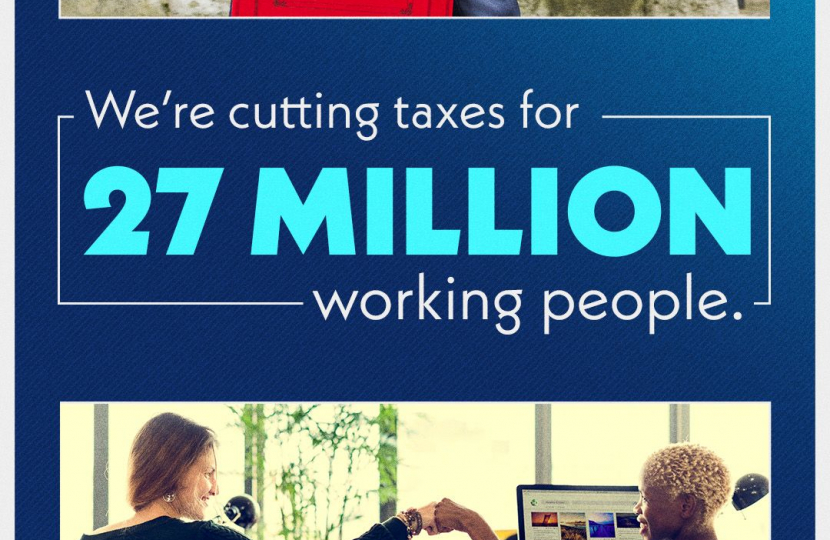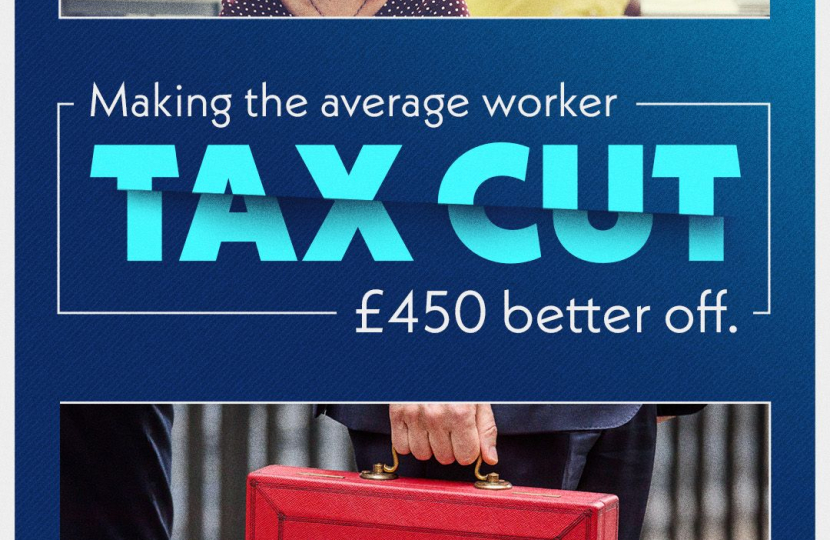Today, our National Insurance tax cut will come into force.
- Taking the long-term, difficult decisions to halve inflation and strengthen the economy means we are able to cut personal taxes and reward hard work across the country.
- That is why from today our cut to National Insurance – saving the average worker £450 a year – will come into force. This cuts the main rate of National Insurance by two pence to ten per cent, benefiting 27 million workers.
- This tax cut would not have been possible under Labour who refused to back our difficult decisions to halve inflation and would have no choice but to fund their £28 billion plan through tax rises.
We are doing this by:
- Cutting National Insurance contributions for 27 million people in January 2024, saving the average worker £450 a year. From Saturday 6 January 2024, the main rate of National Insurance contributions will be cut from twelve pence to ten pence. This delivers an annual average tax cut of £450 to 27 million workers, rewarding hard work across the country.
-
- A hard-working family with two earners on the average income will be £900 better off.
- A senior nurse with five years of experience will be better off by £600.
- The average police officer will be better off over £630.
- A typical junior doctor will be better off by over £750.
- A typical self-employed plumber will be better off by over £410.
- The typical teacher will be better off by over £630.
- Going further by cutting and simplifying tax for two million of the self-employed, supporting the country’s entrepreneurs who grow the economy. Later this year, we will abolish an entire class of NICs and cut the rate of the NICs top rate from nine per cent to eight per cent for the self-employed – with an average total saving of around £350 for someone earning £28,000 a year.
- The Autumn Statement cut business taxes permanently by £11 billion a year, the biggest business tax cut in modern British history. We promised to make full expensing permanent when the economic conditions allow and have now delivered that. Making full expensing permanent enables businesses to invest for less and offset investments against their tax bills.
It is right that we are responsible with public finances, paying back the support we rightly put in place during the pandemic and the energy crisis. We have been clear that over time we will cut taxes in a responsible way based on fiscal rules and the position of the public finances. In light of the lower forecast for borrowing, we have started to deliver on that promise.
How you are affected - https://www.tax.service.gov.uk/estimate-jan-24-nic-changes
NI rates and information - https://www.gov.uk/.../rates-and-allowances-national...
Earnings figures - https://www.ons.gov.uk/.../annualsurveyofhoursandear.../2023




